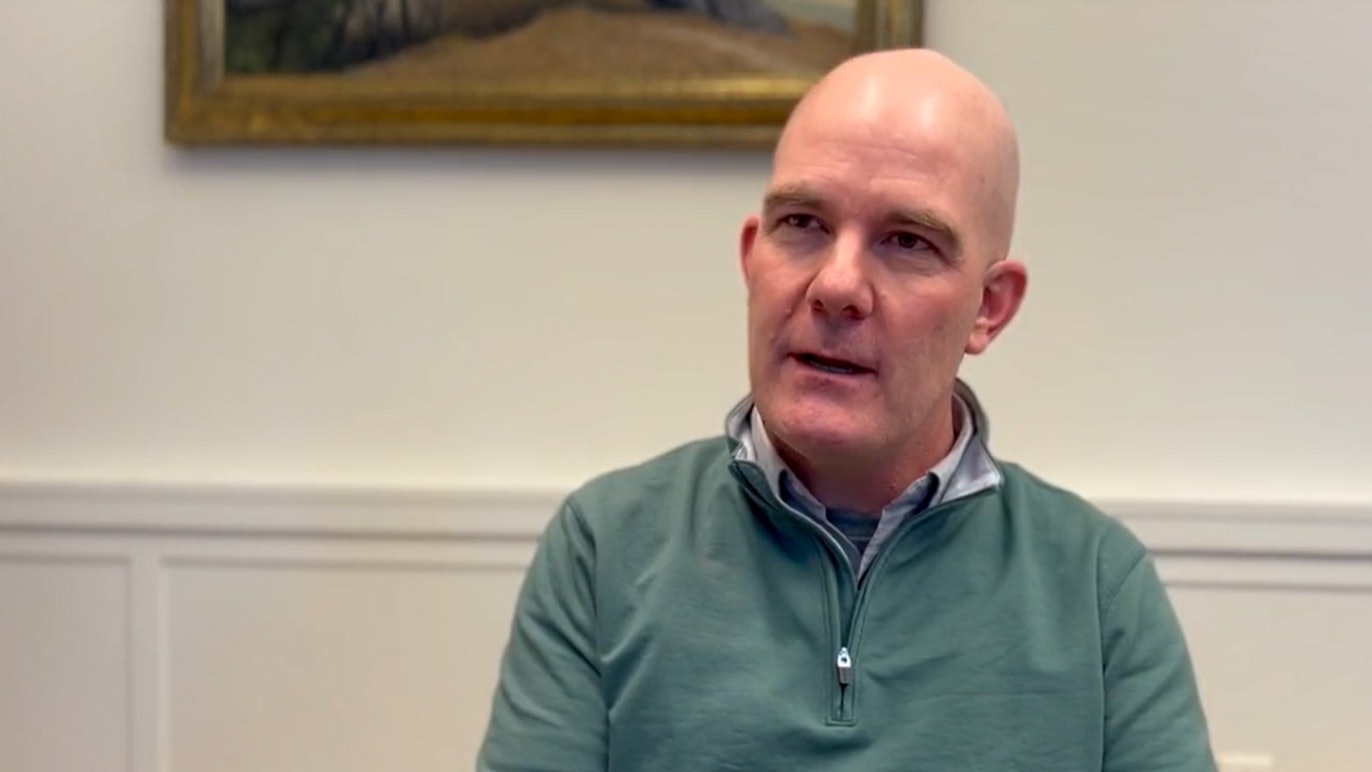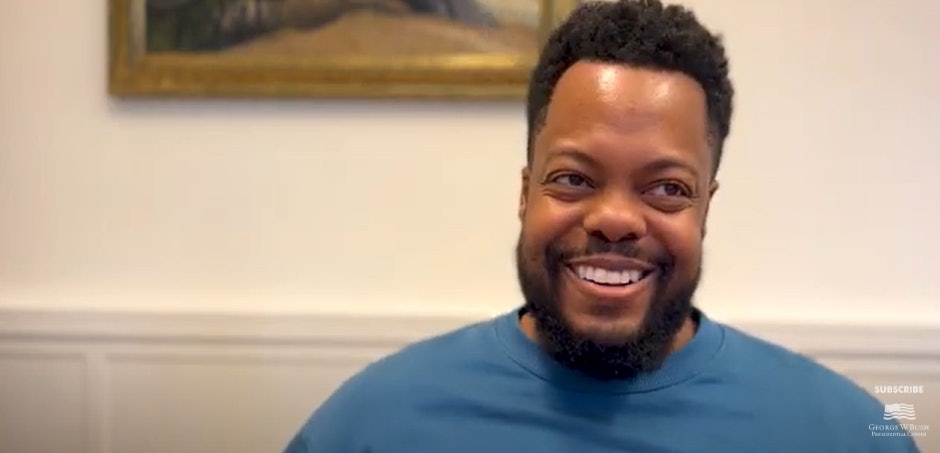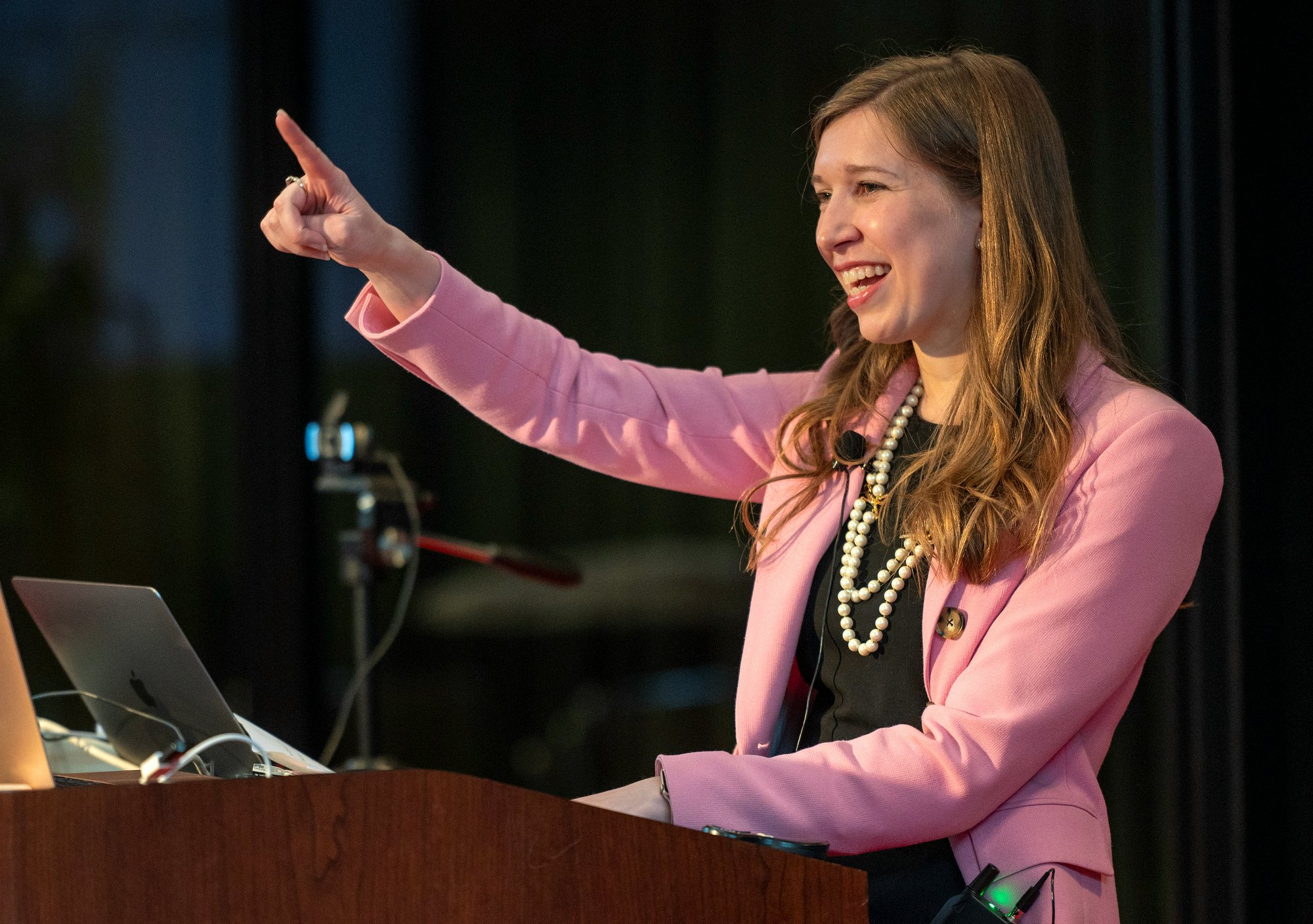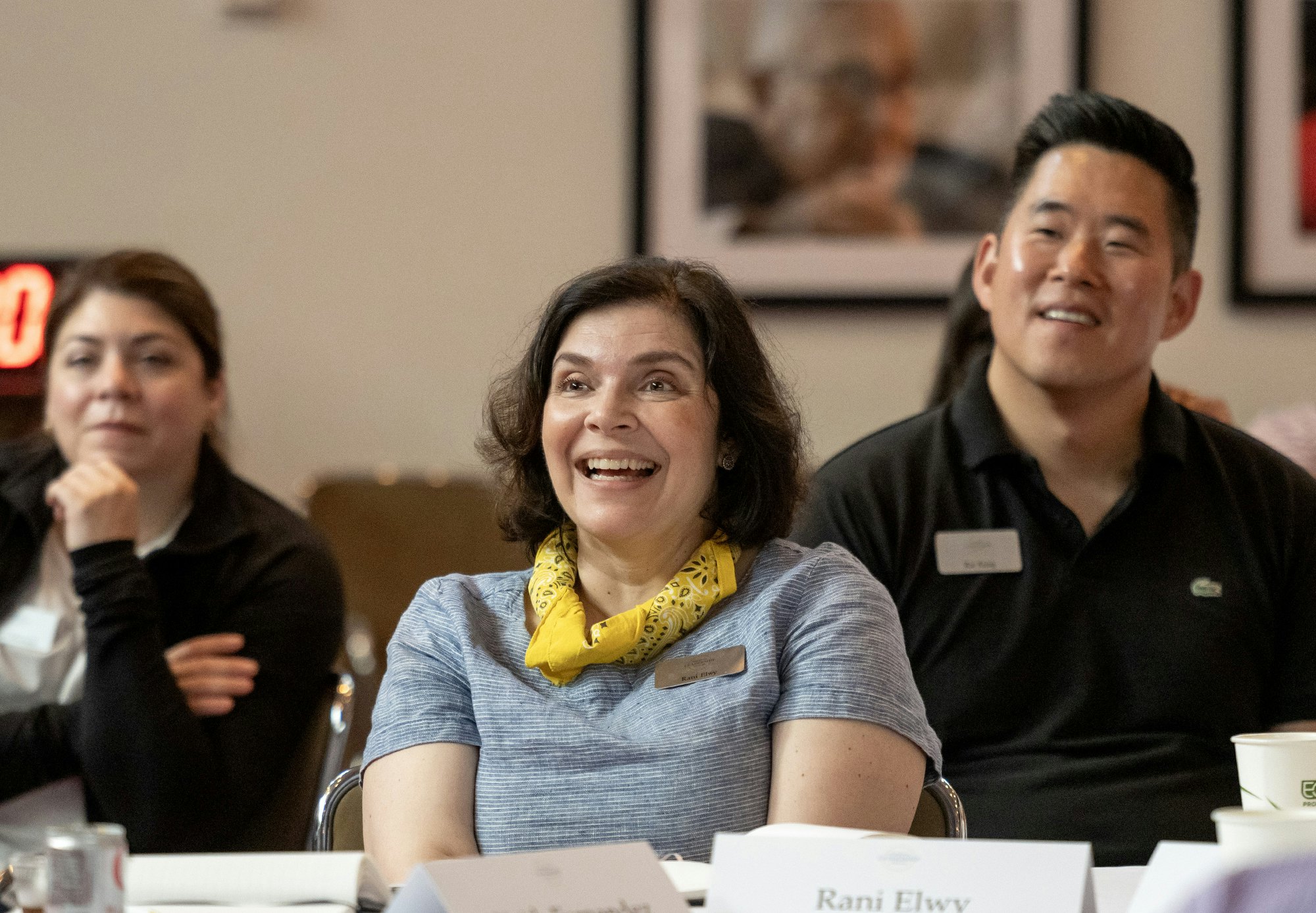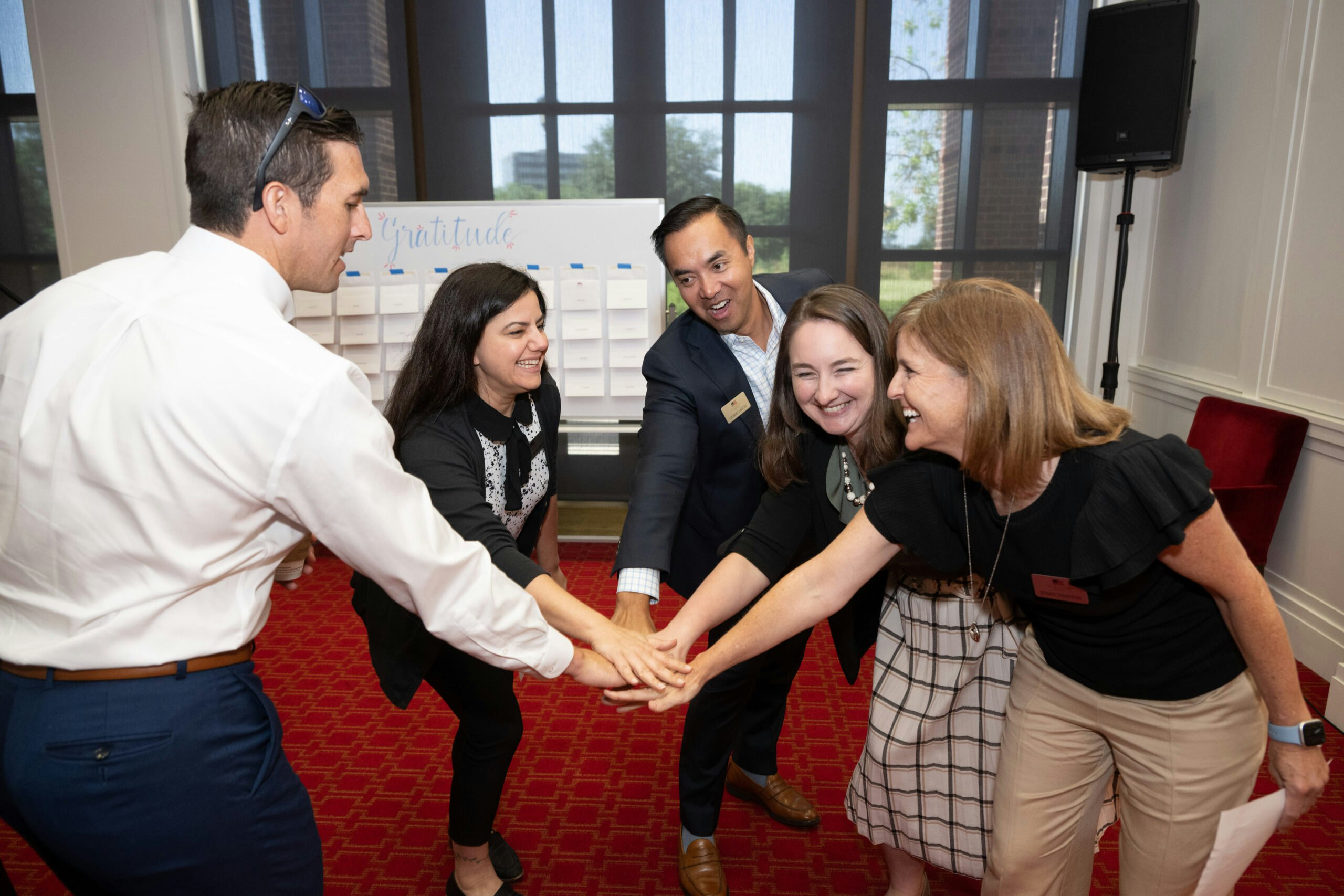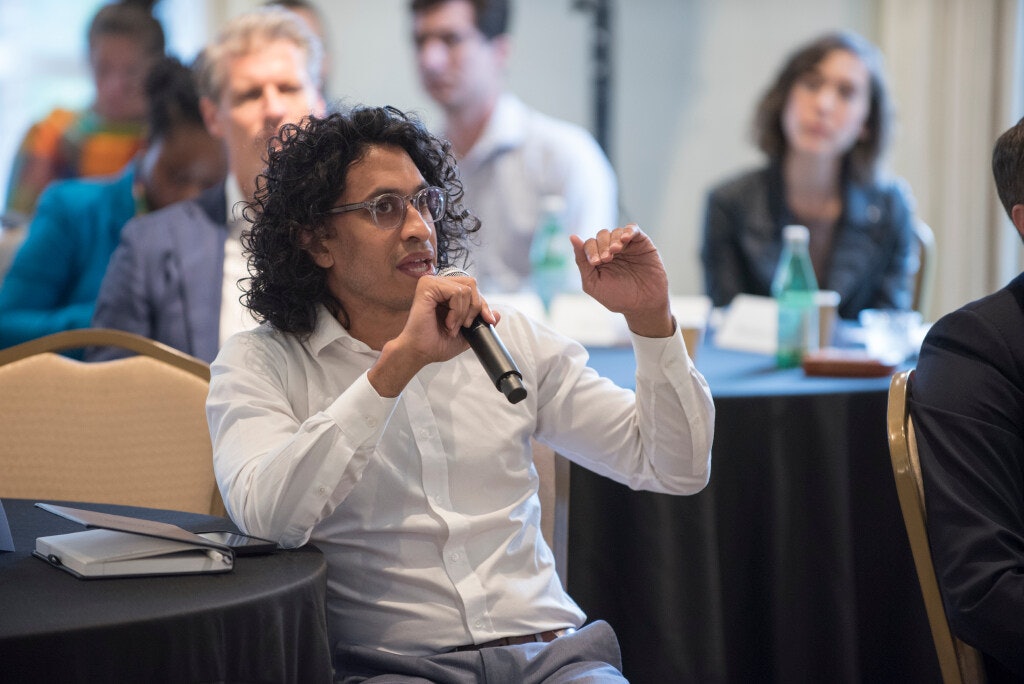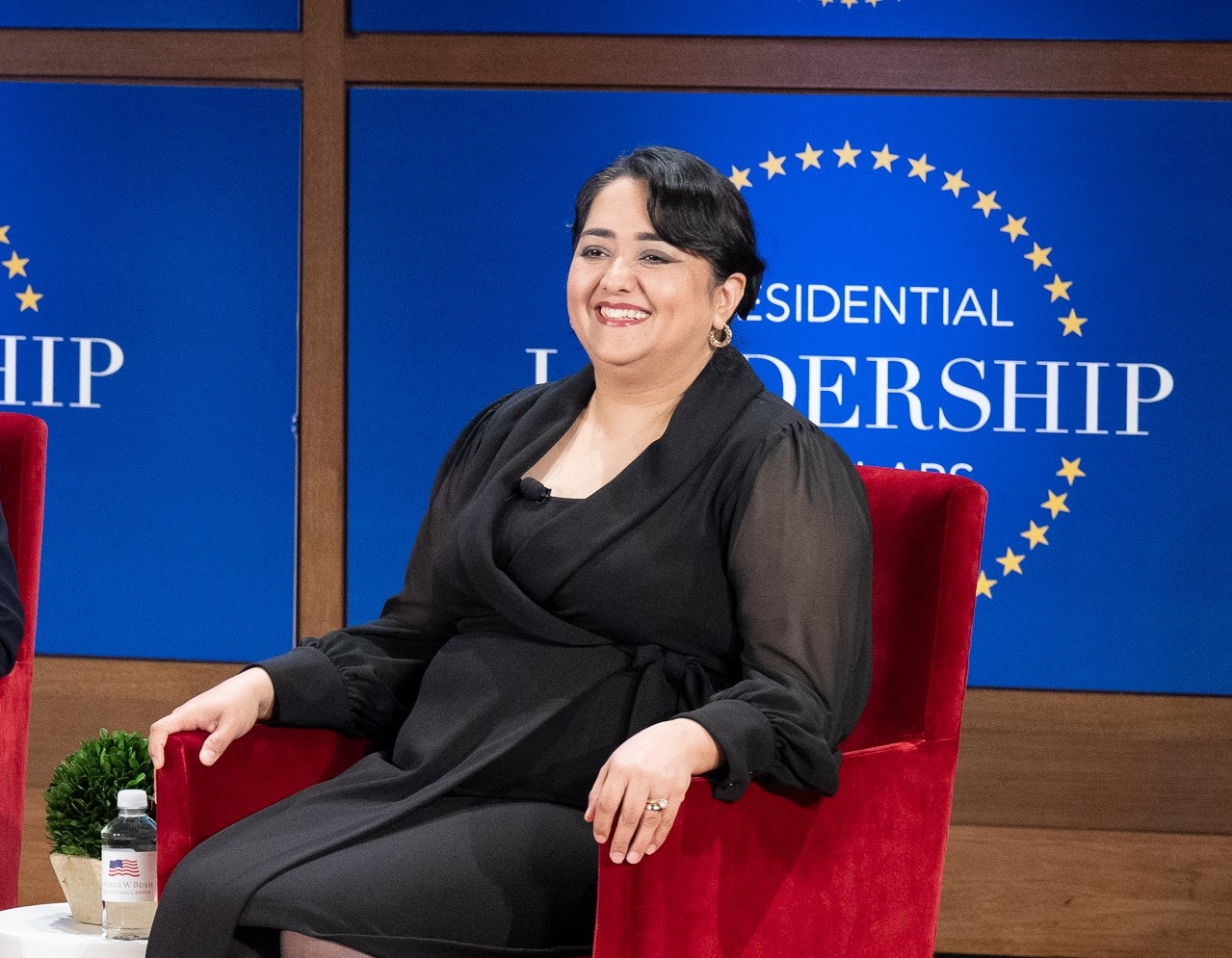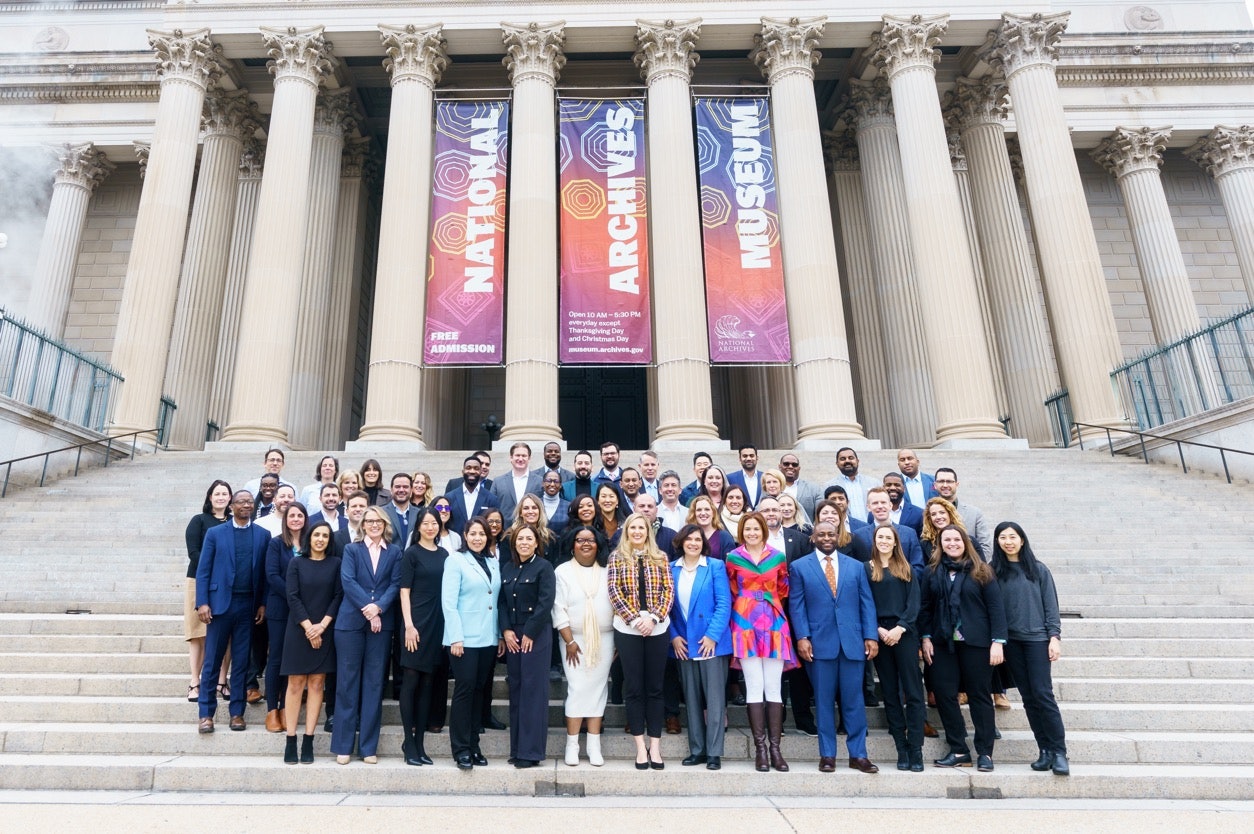Chris Lancia is a 2021 Stand-To Veteran Leadership Program Scholar and the first Director of Military and Veteran Initiatives for Tennessee State Government. Below he discusses his personal and professional military experience and the lessons he learned through the Veteran Leadership Program that are helping him create meaningful change in the military-connected community.
Please tell us a little bit about yourself and your personal leadership project.
I was born in Rhode Island, and my father enlisted in the Army when I was 5 years old. We lived in North Carolina, Arizona, Florida, and Germany during his career. That allowed me to have some unique experiences, including graduating from high school in Germany (Vilseck American High School).
Following high school, I enlisted in the Army as a UH-60 Black Hawk Helicopter repairer and crewmember. I spent nine years on that enlistment and met my wife, Sarah, while we were both serving in Germany. (She was a nuclear, biological, and chemical warfare specialist.)
I left the military to pursue a college education 90 days before the events of 9/11. My initial goal was to earn my degree and return to the Army as an officer, but we decided to test the waters on the civilian side. I spent four years as a journalist, rising from freelance sports reporter to the editor of Effingham Now, a three-day-a-week publication in Georgia.
Living near Fort Stewart and Hunter Army Airfield meant we interacted with servicemembers on a regular basis. Sarah saw the pull the Army still had for me and encouraged me to explore returning to the service. In 2007, I enlisted again, and. in 2010 I earned a commission as a Transportation Officer through Officer Candidate School.
Over the next 13 years, I was fortunate to serve as a company commander, a logistics advisor, an instructor, and finally a public affairs officer.
In 2023, we began pursuing military retirement. I was honored to be selected as one of the first two Tennessee Governor’s Veteran Fellows and am now employed by the Tennessee State Government.
In the Stand-To Veteran Leadership Program, my personal leadership project drew on my experience as a communications professional. I recognized that the perceived stigma of seeking care is sometimes tied to the organization providing the care and developed a communications plan that focuses on the person providing the care or resource rather than the organization. The idea is that a veteran or family member will have a higher likelihood of seeking care from an individual to whom they can connect and feel genuine care and concern rather than a faceless organization about which they may have negative impressions.
Please give us an update on what you have been working on since completing the Stand-To Veteran Leadership Program.
I was fortunate to participate in the program while still serving in the Army on active duty, and the relationships and growth provided were a tremendous asset to me as I finished out my military career and prepared for our family’s next chapter.
I spent my final three years on active duty as the public affairs officer for the 160th Special Operations Aviation Regiment (Airborne) at Fort Campbell, Kentucky. Our command team placed a focus on building an enhanced path to successful transition for our servicemembers and their families. My Stand-To Veteran Leadership Program network helped us make connections and explore options along those lines.
In 2021, I was asked to participate in a Tennessee State Government working group with the mission of creating pathways to attract and retain military-connected talent for the state. One outcome from that was the creation of a Governor’s Veteran Fellowship Program and my selection as one of two fellows in the pilot phase of the program. And again, my Stand-To Veteran Leadership Program network helped as we developed our plans.
Sarah and I also identified an information gap for military families that we’re actively working to fix.
Our research has found that a sense of belonging is something military families often lack. Since we move so often, our roots are shallow, and we can feel like strangers in the places we live.
That’s compounded when a military family gets orders to a new place and receives negative feedback about the location from friends. When they search for info, what they often find validates the negative feedback or is outdated and inaccurate.
Drawing on our enjoyment of exploration and our backgrounds, we started “Grid Square Recon, LLC.” Our focus is to build community around military bases by showcasing the wonderful people, locations, and resources that exist there. A great side benefit is the opportunity to create a freelance employment network for military spouses who are content creators. They can help tell stories that will positively impact fellow military families.
We’re still very much in the development phase. Our plan is to put some meat on the bones of this idea in 2024.
Which lessons learned during the Veteran Leadership Program have stayed with you the most, and how have you put those lessons into action?
The biggest lesson was a reminder that it’s important we embrace vulnerability and get outside of our echo chamber to ensure we consider all aspects of any work we’re doing.
The program was filled with leaders from different professional areas, different backgrounds, and different stances on a variety of items. Yet our conversations had depth and civility and ensured our dialogue was respectful even when disagreeable.
The Stand-To Veteran Leadership Program drives us to have those conversations. To dig into those disagreements and find common ground that allows us to better serve our communities. To admit that it’s OK to disagree while still working together for the common good.
Like most exceptional programs, one of the biggest takeaways is always the people. And our Stand-To Veteran Leadership Program network is filled with those who will overcome disagreements to build stronger communities and a stronger nation. That’s a lesson which is sorely needed in our nation right now.
You were recently appointed as the first Director of Military and Veteran Initiatives for the Tennessee State Government. What are your current goals in this role, and what do you see the as greatest opportunities for the military-connected community in the state?
We often hear “veteran-ready” and “thanks for your service” without any real weight behind those phrases. In Tennessee, Governor Lee and our state Legislature have helped us put action behind those words. Our north star is to make Tennessee the best place in the nation for veterans and their families to live and thrive.
Over the last year, we’ve seen the creation of a Governor’s Veteran Fellowship Program. Inclusion of the program in the state budget to allow us to fund a 12-month fellowship for up to six veterans each year. We’ve also seen the reconstitution of our Armed Forces Council into a 13-member body with subcommittees filled with experts who are volunteering their time to help us improve the landscape for veterans and military families in our state.
My personal goals include helping remove the silos that often occur in government to bring together existing programs to better support the military-connected community and to enhance our public-private partnerships to support partners who are providing direct interactions with the military-connected community that will foster their ability to thrive.
Tennessee has always had great support for the military community. Our renewed focus on the family unit and concerns such as education benefits and quality of life issues is where our greatest opportunities exist.
We’ve also committed to identifying where other states are creating value for the military-connected community and using that as inspiration to continue to add to our support options in Tennessee.
If we invest in providing an education for a military spouse or child, if we invest in ensuring a military or veteran spouse has the same support to build a career as the veteran, and if we find ways to demonstrate we value the entire family and not just the veteran, it’ll be hard for a veteran to say no when the opportunity to remain in or relocate to our state presents itself.
Tennessee has workforce opportunities across the state. We have environments that range from mountains to lakes to farms, with beautiful cities and towns large and small. That variety provides the right place for every veteran and family. We’ve got room for growth to pursue programs and policies that positively impact the military and veteran communities, and we’re dedicated to embracing those opportunities and building an infrastructure that will be impossible to ignore.
What do you currently see as the greatest challenge facing the military-connected community and why?
The biggest challenge is the inaccurate negative narrative surrounding the veteran community. In the news and on social media, the preponderance of stories is of a veteran struggling with physical and mental health issues, unable to adapt to society and find success in our next chapter.
The reality is that while those stories do exist and require resources to address them, they’re the minority. The majority of our community are doing well and bringing tremendous value to the communities in which we choose to live and work.
Over the last few years, the military has struggled to meet recruiting goals. That issue is directly tied to the negative representation of a veteran that we allow to be presented.
If we can continue to build a network that tells the positive stories of service and highlights the incredible opportunity military service provides, the resulting secondary impact will be better opportunities after service. And better opportunities for military spouses, which is a largely untapped talent pool with a wealth of value.
More employers will want veterans to serve in all levels of their organization, and more employers will welcome military spouses and family members on their teams.
More capital will be invested in fostering success for the military-connected community.
We can create an upward spiral simply by being more accurate in our representation of veterans while acknowledging that some among us have unique needs that we must focus on providing.
There’s a fallacy of logic in those who think highlighting negative stories will bring about increased resources and support. It’s a simple case of return on investment: if we showcase the positive impacts veterans and military families bring to our communities, we demonstrate the value that is worth investing into even more.
And that’s a story worth telling.






